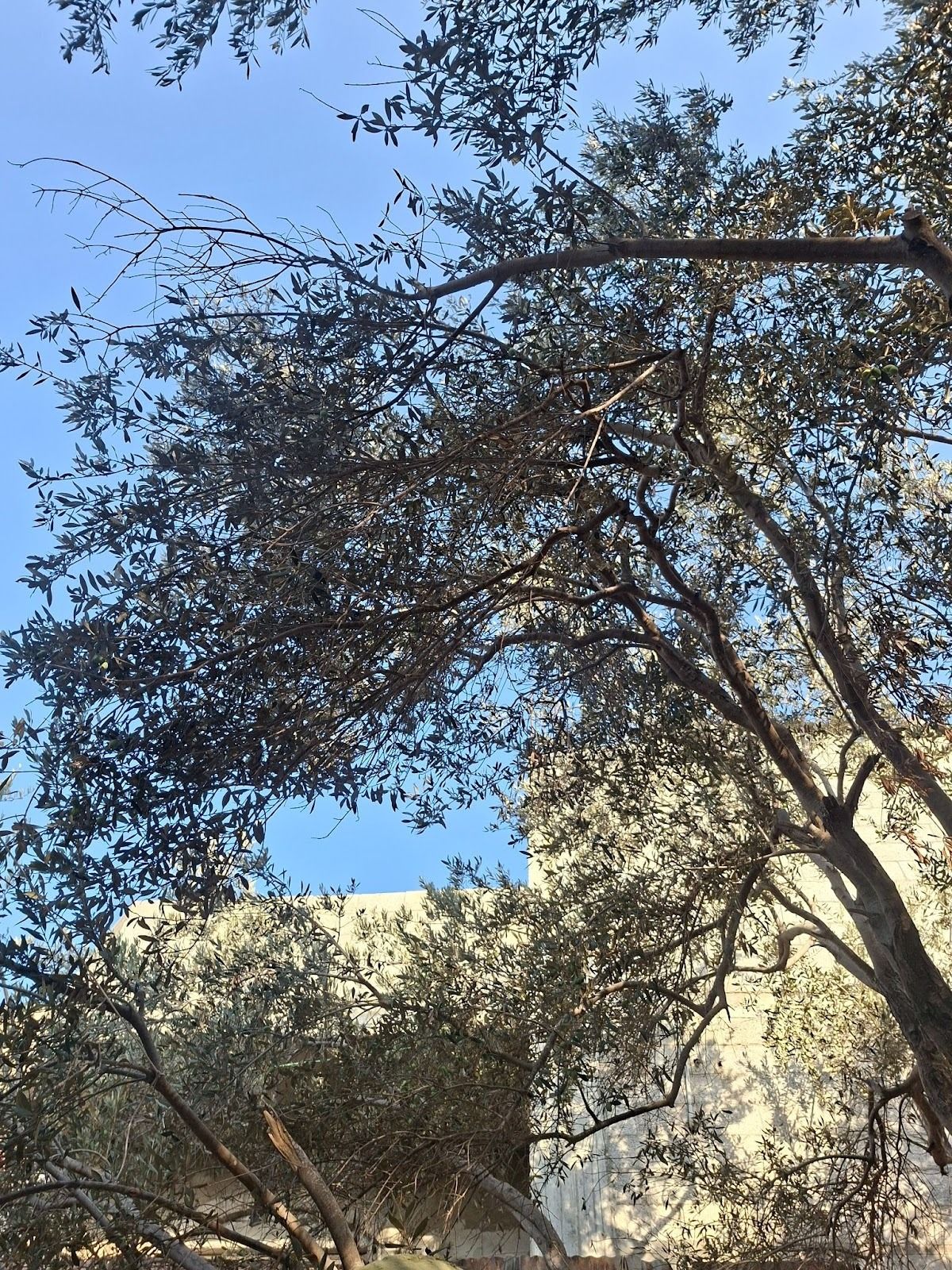- Refaat Writes Back
- Posts
- The Gaza I passed by
The Gaza I passed by
Morning walk

October 26, 2025
At 8 a.m., I woke up on my luxurious mattress in the ‘safe’ al-Nusirat Camp, thinking for fifteen minutes about how I was there, when, and why, and all the usual gruesome questions that torment the entire population daily. The cold morning breeze hitting my face reminded me of mornings when I wore my blue jeans and well-ironed shirt and pep talked myself to go deliver an interactive lecture to my first-year university students.
Eventually, I decided to silence the inner voices and memories that only haunt me in early mornings and late pitch-black nights, clinging to the straw of faith that evermore urges me to take a breath, put on my shoes, and make sure I wasn’t bitten by any insects.
The first person I met after stepping out of my fabric-tent kingdom was Ali, a wartime firewood seller. He was sipping his coffee and puffing a hand-rolled cigarette as if he were a Russian philosopher. Sarcastically, I said, “Ali, good morning, everyone is waiting for the gas, and many stoves are getting ready to get back on track!” He nodded and laughed. “Good morning. You know, let the war really end, and I’ll distribute all the wood for free,” he said firmly.
Ali lost eight members of his family, along with his home, in the first month of the genocide, as he told me after being displaced to Al-Nusirat Camp from Gaza City.
I waited for a car or a cart to break the dull horizon of the street for half an hour, and as always, I lost my interest and decided to rely on my feet. Eying a brand-new falafel stall along the way, I slowed my rushed steps and asked the young man about the prices. He answered, “One sandwich costs eight shekels with salad and fries.” In that moment, many scenes flashed through my mind: the bodies stained with blood on the ground, malnourished babies taking their last breaths at Kamal Edwan Hospital, the clearly visible ribs of the food-parcel martyrs, and airdrops smashing the bones of tent dwellers.
“Do you want one?” he said, breaking the stream of images in my mind.
“With extra toppings and some mozzarella,” I jokingly replied. He glanced at me and said, “Maybe next time.” I added, “Or next genocide.” “God forbid,” he called out, smiling.
In Gaza, almost all citizens know how fragile the ceasefire is; however, they prefer to hope and not to bring such ideas to the table.
I still cannot understand why the falafel sandwich was tasteless. I would have paid a fortune for it two months ago. But maybe, when the stomach gets what it needs, the mind is distracted by real sorrow.
A warplane at low altitude was showing off its howling sound in the sky, breaking the unusual calm. No one in the street paid any attention to it, as if it were never there. Two years ago, it would have been a joke to say that any warplane could fly at such an altitude, but things have changed. A kid — no older than seven, I bet — was carrying a bucket and hawking plastic bags filled with water, “Water, water. Get yourself some cold water!”
“Habibi, come,” I gently asked him.
“How many?” he curiously asked.
“Your treat?” I teased.
“Why not? Let it be Sadaqah in memory of my father,” he said. I rejected his generous offer and took a bag of water. I extended my hand and slipped two shekels into his tiny pocket. And to save my and his time, I said, “Take them or we’re going to fight, no other choices.” He laughed heartily.
When coping becomes the only mechanism to defend one’s sanity, some parts of one’s ability to empathize may be affected. However, they never vanish.
After walking an extra twenty minutes, I arrived at the shared workspace, a second-floor space, full of chairs, tables, and power outlets. Nobody was there yet but the owner. He looked quite concerned and pale. I asked, “What’s the matter?”
“One of my relatives was injured in yesterday’s airstrike,” he replied, “and his condition seems to be severe.”
It is all too common that airstrikes occur during supposed ceasefires in Gaza.
“I think you should pray more and think less,” I reassured him, “smile and release your tangled eyebrows. Do me a favor and bring me a cup of coffee. Get one for yourself on me too; I have something to write, to tell. It is someone’s will”
Refaat, though gone, is still with me.
Good morning, Gaza.
Majd Alkurd is a teaching assistant and writer from Jabalia refugee camp.